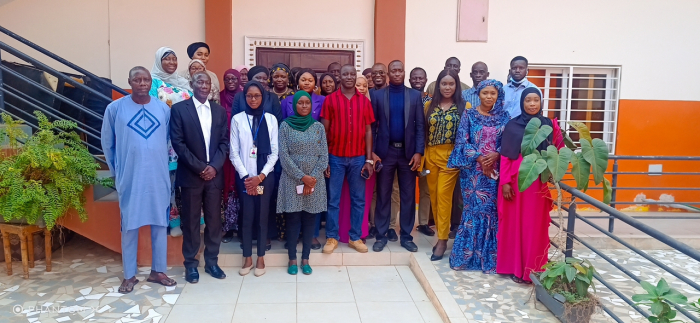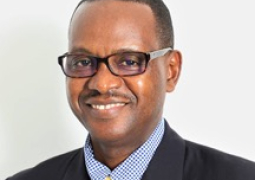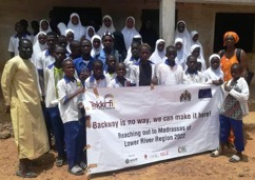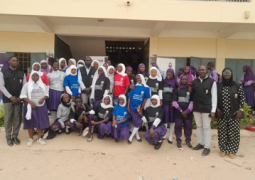
GIRAV is a five-year Gambian Government/World Bank funded project. It comprises USD47.91 million (World Bank: US$40m), Gambian Gov’t: US$4m) & beneficiaries’ counterpart contribution of 3.91m). The project seeks to promote development of inclusive, resilient, and competitive agricultural value chains, focusing on smallholder farmers and agribusinesses in project target areas across the country.
At the ceremony, Mariyann Jabang, director of Gender Bureau at the Ministry of Gender and Children Welfare, expressed appreciation on behalf of the ministry to be associated with such an important forum, which she said, seeks to address gender-based violence, sexual exploitation, and abuse.
“In this context, we are looking at the work of World Bank and the implementation of projects. But in broader terms, we are also looking for the concerted measures, the measures that we take as implementing partners as a government to strengthen our approach and management, as well as prevention of gender-based violence and violence against children in the Gambia.” she explained.
For his part, Lamin Camara, environmental Specialist at the GIRAV Project revealed that 35% of women worldwide experienced physical or sexual, intimate violence and also at global level, 7% of the women have been sexually assaulted by either their partners or others.
“Globally as many as 38% of the murders of women are committed by intimate partners and these numbers, if you look at, you would agree that they are already diversity are not only diversity they have some significant social and economic costs. So, in order to avoid these things, in our investment project, the World Bank is supporting the GIRAV and the government of The Gambia is committed to implementing some measures we call it the policy directions or what we call environment and social standards to ensure that all activities, gender-based violence free.”
Camara indicated that as a measure, the bank has put in place global gender-based violence task force, adding that as part of the recommendation of this task force, they initiated some key action plans that are necessary as far as bank investments are concerned.
He reminded that key among those action plans is to develop methodologies for assessing the risk of sexual exploitation and abuses, as well as gender-based violence that's the key action plan, and also develop guidelines and training materials to build stars and clearance capacity to address risks of sexual exploitation and abuse on gender-based violence.
This, he believed, would help strengthen operational processes to address the gender-based violence issues in their project Influence zones as well as to develop internal and external outreach campaigns to ensure adequate funds to implement mitigation measures.





